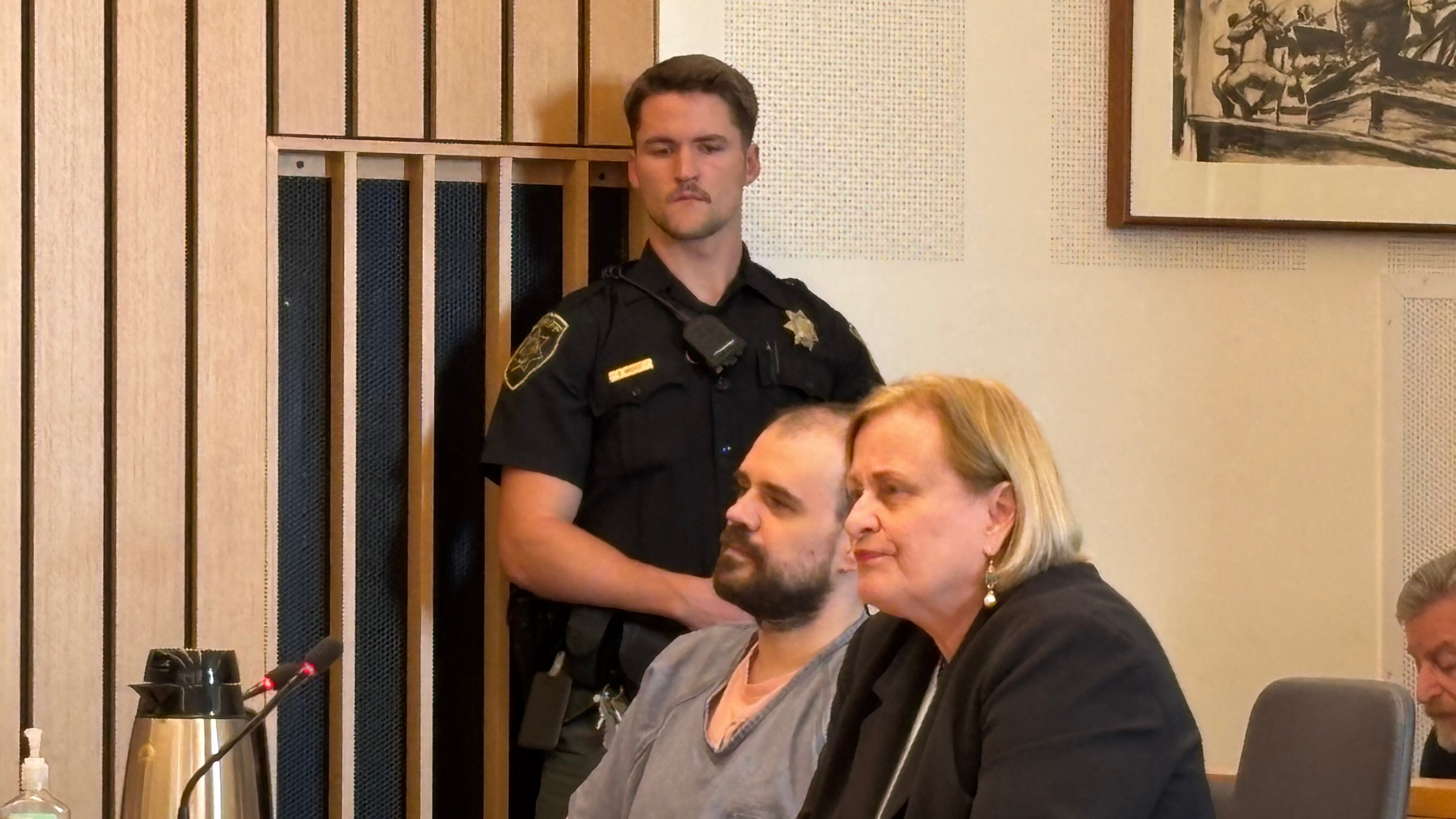Michael Bivins, the former Portland journalist who, following a dark turn, went on a hate spree menacing Jewish, Muslim and Black institutions, will spend another year in prison before living under several years of what the judge in the case said he hoped would be very close supervision.
Prosecutors and Bivins’ defense attorney agreed on the sentence—which formally includes five years of incarceration and another five of probation. (Functionally, Bivins will serve about a year of additional prison time, given time he’s already served.)
A jury convicted Bivins in July of all 11 charges in his bias crime trial—that’s the term Oregon uses for what are commonly referred to as hate crimes—including convictions for felony arson and criminal mischief.
Over a brief period in spring 2022, more than two years after his last newspaper byline appeared, prosecutors said Bivins spray-painted a Nazi-evoking death threat and broke windows at a synagogue; that he attempted to set fire to the Muslim Community Center in North Portland while people were inside the building; and that he broke windows at another synagogue and a Black-owned restaurant.
Prosecutors, in court papers, said it would be appropriate to sentence Bivins to more than five years of prison. The ultimate proposed sentence reflected victims’ desire to balance mercy and justice—though the challenges of such an effort became clear in the case of Bivins, who on Thursday showed no remorse.
“Save your pity for the weak,” Bivins grumbled, after a representative for the Muslim Center said he felt sorry for Bivins and forgave him.
These and other remarks by Bivins informed Multnomah County Circuit Judge Eric Dahlin’s subsequent summary of the matter at hand.
“Based on my limited interaction with Mr. Bivins in this case, which is really related just to the trial and a pretrial hearing, then also what I observed today, it appears to me that there are some significant mental health issues that need to be addressed,” Judge Dahlin said. “And I’m hopeful, really hopeful, that those issues could be addressed during probation. Not hopeful that that’s going to be addressed much in prison, but it’d be great if it could be.”
Bivins was a freelance journalist for local news outlets, including Willamette Week, for which he wrote some 20 stories between 2016 and 2019. He also worked at Oregon Health & Science University.
Then, as WW has reported, his life took a dark turn. “Something happened that caused his life to spin out of control,” Judge Dahlin said in summary. Bivins lost his marriage, lost his job at OHSU, lost his housing—and potentially, the judge added, lost “his grip on reality, and apparently went down a white supremacist rabbit hole.”
Rabbi Michael Cahana of Portland’s Congregation Beth Israel was among those in the courtroom Thursday who recalled what Bivins then did.
First, though, he recalled the long history of his synagogue, including how it was a gathering place for local Jewish people to express their horrors after Kristallnacht—when, amid the Nazi rise, Jewish establishments in Germany were looted and destroyed in a famous night of antisemitic terror.
Fast forward to April 2022 when, the rabbi recalled, community members gathered in the synagogue to commemorate those who perished in the Holocaust.
“The very next morning, our staff awoke to find antisemitic graffiti in German painted on the walls of our historic sanctuary,” he said. “Those words painted on our sanctuary by Michael Bivins echoed the very language scrawled on Jewish businesses and synagogues.”
After reporting the vandalism, the synagogue had it quickly removed. “The very next day,” the rabbi added, “Mr. Bivins chose to return to the scene and throw a rock through our library window just across from that sanctuary, making clear the connection to the night of broken glass.”
More than property damage resulted from these and the other crimes Bivins went on to commit, prosecutors and victims argued; rather, they said, the actions sought to shatter Muslim, Jewish, and Black peoples’ sense of safety.
Eventually, in court, it was Bivins’ turn to speak. He said he would quote from the autobiography of Richard Nixon.
“It was,” he said, “Robert Kennedy who authorized the first wiretaps on Martin Luther King.”
There was a pause. “That’s your statement?” the judge asked.
Bivins affirmed that this was all. Then the judge issued his sentence.

